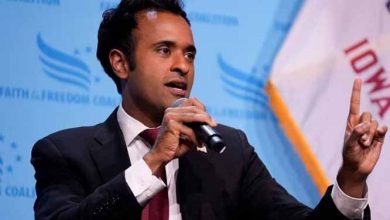India initiates last minute change in COP26 deal over coal use

Glasgow, Nov 14 (AP): Almost 200 nations accepted a compromise deal aimed at keeping a key global warming target alive, but it contained a last-minute change that watered down crucial language about coal.
Several countries, including small island states, said they were deeply disappointed by the change promoted by India to phase down, rather than phase out coal power, the single biggest source of greenhouse gas emissions. Many other nations and climate campaigners criticised India for making demands that weakened the final agreement. Environment Minister Bhupender Yadav argued against a provision on phasing out coal, saying that developing countries were entitled to the responsible use of fossil fuels. Yadav blamed unsustainable lifestyles and wasteful consumption patterns in rich countries for causing global warming.
After Yadav first raised the specter of changing the coal language, a frustrated European Union Vice President Frans Timmermans, the 27-nation EU’s climate envoy, begged negotiators to be united for future generations. “India’s last-minute change to the language to phase down but not phase out coal is quite shocking, said Australian climate scientist Bill Hare, who tracks world emission pledges for the science-based Climate Action Tracker. India has long been a blocker on climate action, but I have never seen it done so publicly.
Our fragile planet is hanging by a thread, United Nations Secretary-General Antonio Guterres said in a statement. We are still knocking on the door of climate catastrophe.
Nation after nation had complained after two weeks of UN climate talks in Glasgow, Scotland, about how the deal did not go far or fast enough. But they said it was better than nothing and provided incremental progress, if not success.
In the end, the summit broke ground by singling out coal, however weakly, by setting the rules for international trading of carbon credits, and by telling big polluters to come back next year with improved pledges for cutting emissions. But domestic priorities both political and economic again kept nations from committing to the fast, big cuts that scientists say are needed to keep warming below dangerous levels which would produce extreme weather and rising seas capable of erasing some island nations. Ahead of the Glasgow talks, the United Nations had set three criteria for success, and none of them were achieved. The UN’s criteria included pledges to cut carbon dioxide emissions in half by 2030, USD 100 billion in financial aid from rich nations to poor, and ensuring that half of that money went to helping the developing world adapt to the worst effects of climate change.
We did not achieve these goals at this conference, Guterres said. But we have some building blocks for progress.








